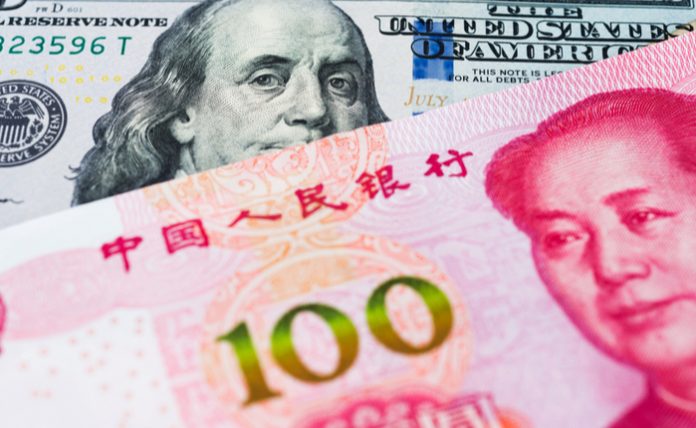China devalues the yuan
Wall Street looks set to open lower on Monday, after China guided the yuan below the psychologically important level of 7 to the American dollar for the first time since the 2008 global financial crisis.
The onshore exchange rate for the currency dropped below renminbi 7 early Monday for the first time since May 2008, falling as much as 1.3% to renminbi 7.0297 per dollar.
The move, which comes days just a few days after U.S. President Donald Trump abruptly escalated trade tensions with Beijing, is expected to make Chinese goods cheaper and boost exports.
At 5:25 a.m. ET, the Dow futures contract was down 362.5 points, or 1.37% to 26,086.5, the tech-heavy Nasdaq 100 Futures contract declined 146 points, or 1.90% to 7,556.65, while the S&P 500 futures contract was down 43.88 points, or 1.5% to 2,888.62.
Bitcoin rises past 11,500 amid trade tensions
Bitcoin price pushed higher on Monday as traders responded to the growing tensions surrounding the U.S.-China trade war. At 6:14 a.m. ET, the world’s largest cryptocurrency by market capitalization was up 14% from its closing price on Friday to trade at $11,749, according to Bloomberg data.
Prices of other major digital currencies also traded higher with Ether (ETH), TRON (TRX) and Tezos (XTZ) up between 1.7% and 4%, respectively.
Crude oil prices fall as global growth concerns weigh
Oil prices fell on Monday morning, weighed down by worries over the outlook for global economic growth after President Trump vowed to escalate his trade war with China by imposing additional tariffs starting Sept. 1.
At 0840 GMT, U.S. West Texas Intermediate (WTI) crude futures were down $0.71, or 1.28%, to $54.95 per barrel. Brent crude futures fell $0.71, or 1.15%, to $61.18 a barrel.
A protracted trade war between the U.S. and China is likely to hurt global economic growth and cause a slowdown in oil demand growth and economic activity.










